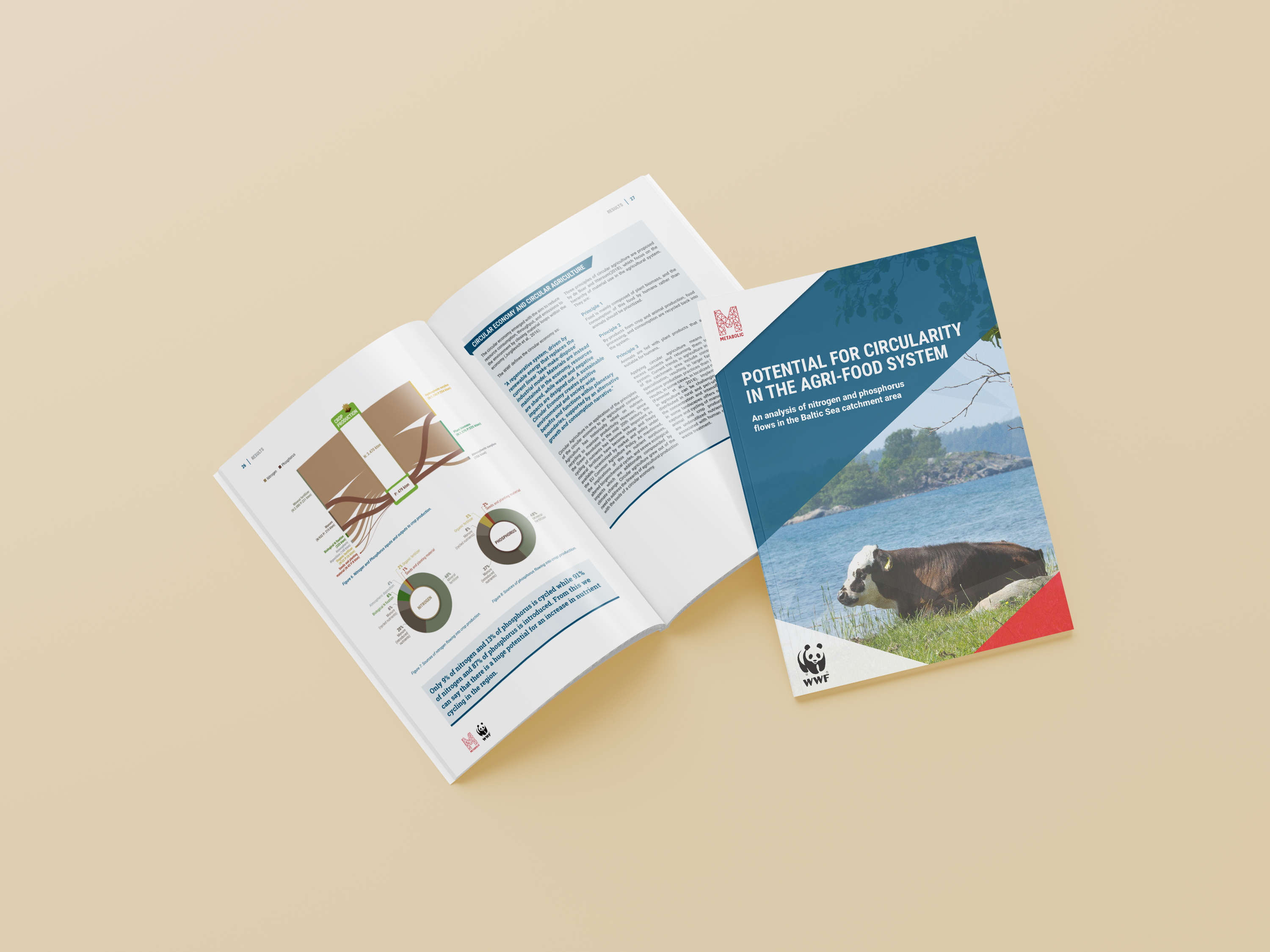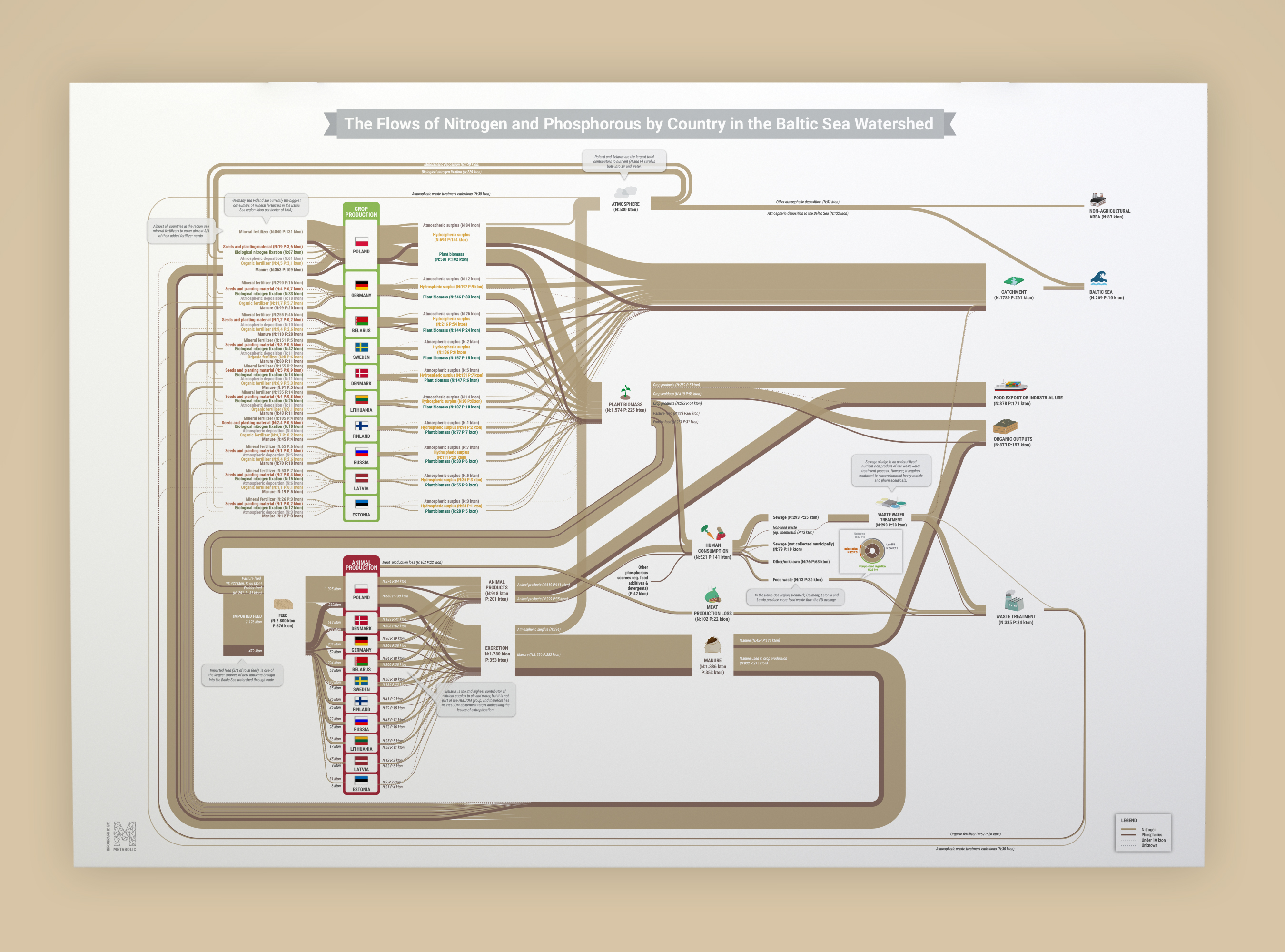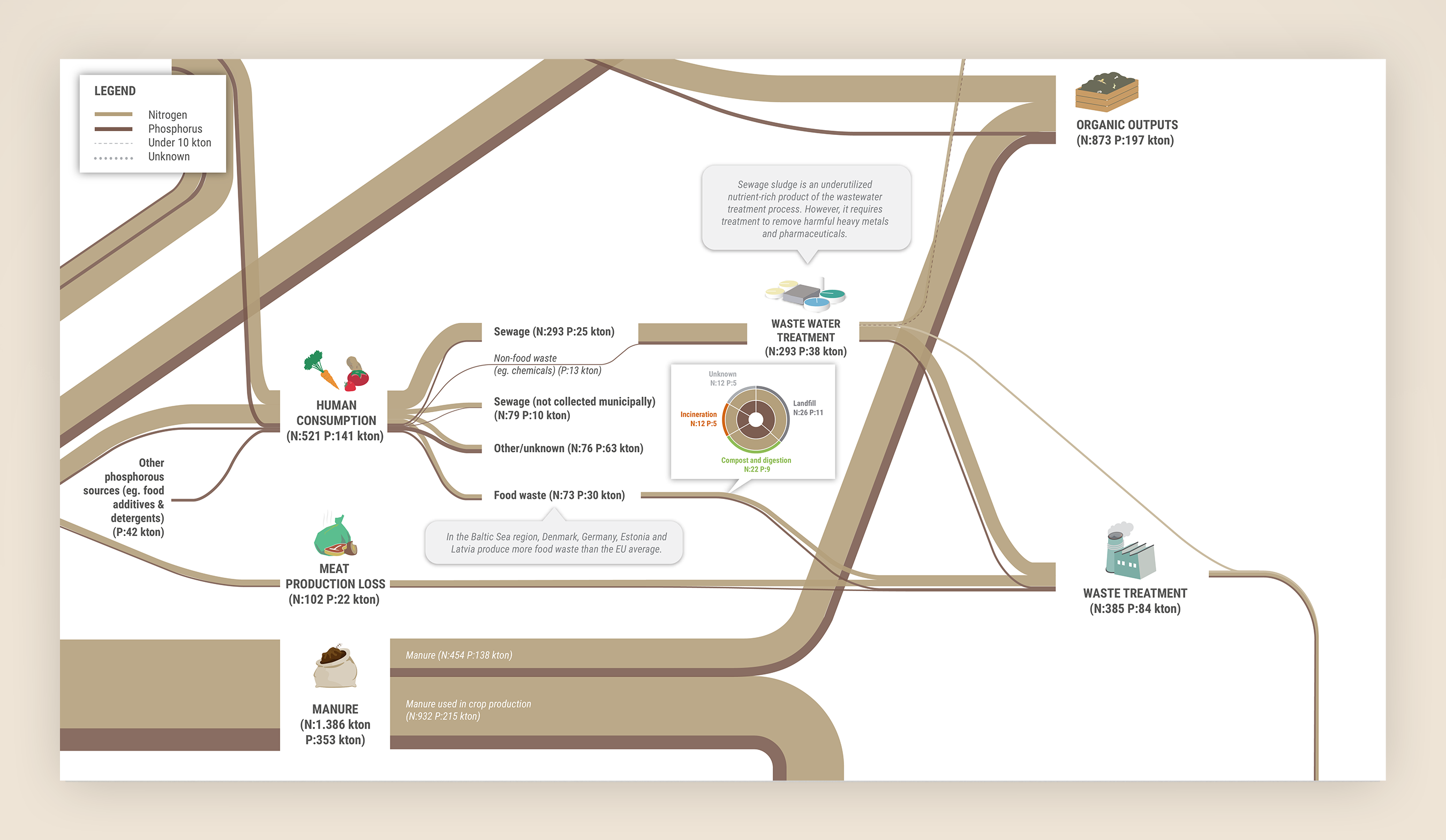The Baltic region faces serious environmental pressures from nutrient pollution and waste.
While at Metabolic, I worked on this report, commissioned by WWF Sweden through the Baltic Stewardship Initiative. The report maps nutrient flows, food losses, and waste, highlighting opportunities to redesign the food system by recovering and reusing nutrients and reducing waste.

I designed the full report with a clear and consistent visual style. The two detailed Sankey diagrams, one by country and one by sector, were the main way to show nutrient flows and losses clearly.
These visuals made the system clearer and helped people spot the findings right away.

Significant losses and waste happen throughout the chain, especially at the consumption stage.
The Baltic agri-food system currently recycles only a small part of nitrogen and phosphorus.
Nutrient recovery and food waste reduction strategies are available but not yet widely used.
By reusing nutrients and reducing waste, the region can greatly cut nutrient runoff and environmental damage.

The Sankey diagram maps nutrient flows by country, showing losses and recovery opportunities.
The report was published alongside the launch of the Baltic Stewardship Initiative, led by WWF Sweden. This initiative brings together key players across the food chain to reduce nutrient losses and promote circular practices. Since then, more than 20 major stakeholders, including farmers and food producers, have joined to tackle nutrient pollution. The report’s findings have helped engage Swedish farmers and policymakers, shaping recommendations shared with Sweden’s Environment and Agriculture Committee and the Ministry of Trade and Industry. It also supports ongoing collaboration and knowledge sharing across the Baltic region.
Learn more on WWF Sweden’s Baltic Stewardship page.